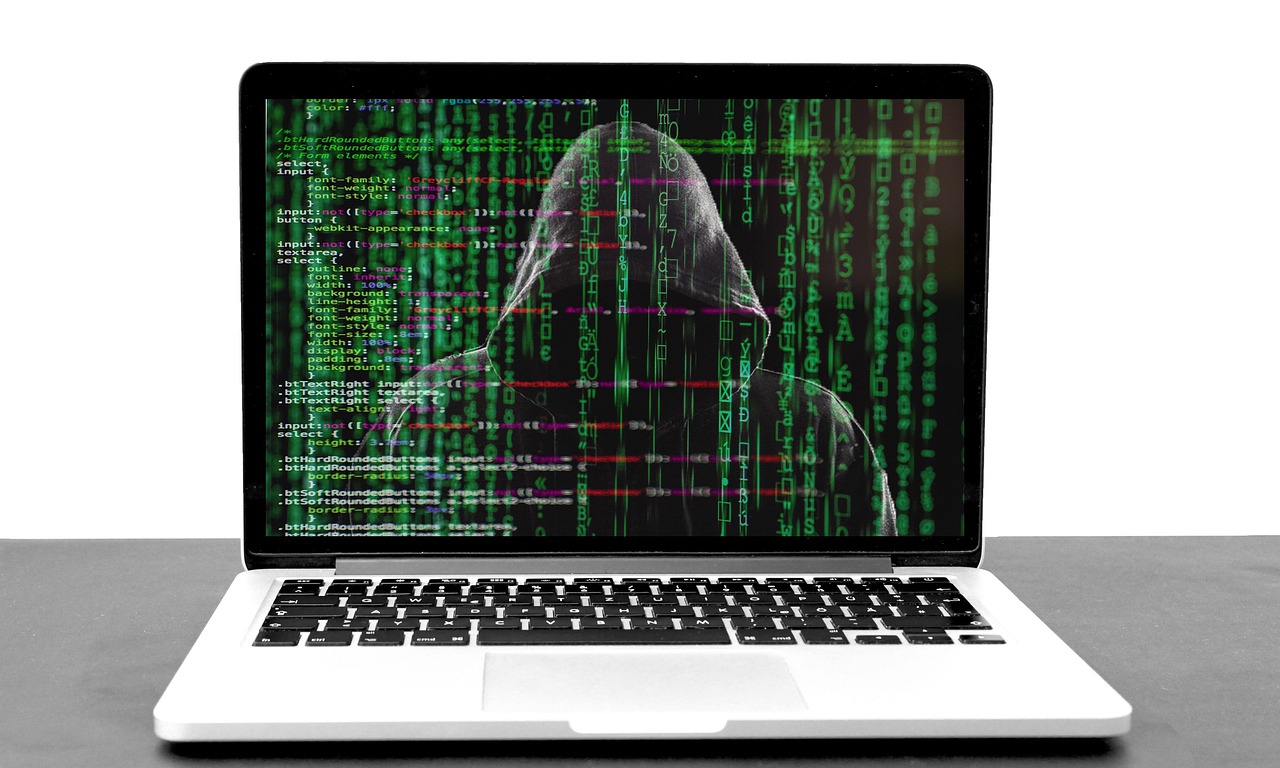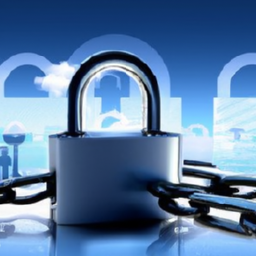Why Is Cybersecurity Important?
In today’s digital age, cybersecurity plays a crucial role in safeguarding our personal information, privacy, and sensitive data. With the constant advancements and increasing reliance on technology, cyber threats have become more sophisticated and prevalent. From identity theft and data breaches to ransomware attacks, the risks are real and can have severe consequences. This article explores the importance of cybersecurity, highlighting its role in protecting individuals, businesses, and even entire nations from the ever-evolving landscape of cyber threats.
Protecting sensitive information
In today’s digital age, the protection of sensitive information has become more crucial than ever. With advancements in technology and the increasing reliance on digital platforms, preventing unauthorized access to sensitive data is of utmost importance. Unauthorized access to personal or corporate information can lead to severe consequences, such as identity theft, financial loss, and damaged reputation. By implementing robust security measures and practicing vigilant data protection, individuals and organizations can significantly reduce the risk of unauthorized access to their sensitive information.
Preventing unauthorized access
Preventing unauthorized access is the first line of defense when it comes to protecting sensitive information. Implementing strong passwords, utilizing multi-factor authentication, and regularly updating software and security systems can go a long way in safeguarding confidential data. Additionally, restricting access to sensitive information only to authorized personnel and employing encryption techniques can provide an extra layer of protection.
Securing personal data
Securing personal data is essential to ensure the privacy and safety of individuals. With the increasing prevalence of online platforms and digital transactions, personal information such as social security numbers, credit card details, and addresses are susceptible to breaches if not adequately protected. Employing encryption protocols, using secure payment gateways, and being cautious of sharing personal information online can minimize the risk of unauthorized access to personal data.
Defending against identity theft
Identity theft is a growing concern in today’s interconnected world. Cybercriminals exploit vulnerabilities in security systems to gain access to personal information and assume someone else’s identity for malicious purposes. By implementing robust security measures, such as regularly monitoring financial accounts for suspicious activity, utilizing identity theft protection services, and being cautious of sharing personal information online, individuals can defend themselves against identity theft.
Safeguarding financial information
Financial information is a prime target for cybercriminals due to its potential for monetary gain. Ensuring the security of financial information is crucial to protect individuals and organizations from financial loss and fraud. Implementing secure payment systems, regularly monitoring financial accounts for suspicious activity, and educating individuals on safe online banking practices are essential steps to safeguard financial information.
Maintaining privacy
Maintaining privacy is vital not only for individuals but also for corporate entities. Protecting personal and corporate reputation, preserving intellectual property, maintaining confidentiality, and avoiding unauthorized surveillance are key aspects of maintaining privacy in the digital age.
Protecting personal and corporate reputation
In the age of social media and online presence, personal and corporate reputation can be easily tarnished by privacy breaches and online attacks. Practicing responsible online behavior, being cautious of sharing sensitive information, and regularly monitoring online presence can help safeguard personal and corporate reputation.
Preserving intellectual property
Intellectual property, such as patents, trademarks, and copyrights, is a valuable asset for individuals and organizations. Protecting intellectual property ensures that innovative ideas and creations are not stolen or misused. Employing legal measures, such as registering intellectual property rights, using confidentiality agreements, and monitoring for potential infringement, helps preserve intellectual property.
Maintaining confidentiality
Confidentiality plays a vital role in various sectors, including healthcare, legal, and finance. Maintaining the confidentiality of sensitive information entrusted to organizations, such as medical records, legal documents, and financial data, is crucial for maintaining trust and complying with legal obligations. Implementing strong security measures, training employees on data handling practices, and regularly auditing systems for vulnerabilities can help maintain confidentiality.
Avoiding unauthorized surveillance
In an era of increasing surveillance capabilities, protecting against unauthorized surveillance is essential to maintain privacy. Individuals and organizations should be cautious of possible surveillance threats, such as hidden cameras, unauthorized access to personal devices, and unauthorized monitoring of online activities. Implementing physical and digital security measures, such as using privacy screens, encrypting communications, and regularly updating anti-spyware software, can help avoid unauthorized surveillance.
Preventing cyber attacks
Cyber attacks pose a significant threat to individuals, organizations, and even critical infrastructure. Minimizing the risk of data breaches, protecting against malware, defending against ransomware, and preventing denial of service attacks are key strategies in preventing cyber attacks.
Minimizing the risk of data breaches
Data breaches can result in the exposure of sensitive information, financial loss, and damage to an individual’s or organization’s reputation. To minimize the risk of data breaches, individuals and organizations should regularly update security systems, employ encryption techniques, conduct vulnerability assessments, and educate employees on safe data handling practices.
Protecting against malware
Malware, including viruses, worms, and Trojan horses, can compromise the security of systems and steal sensitive information. Utilizing up-to-date antivirus software, regularly scanning for malware, disabling automatic downloads from unknown sources, and being cautious of suspicious email attachments or links can help protect against malware attacks.
Defending against ransomware
Ransomware attacks have become increasingly prevalent, targeting individuals and organizations by encrypting their data and demanding ransom for its release. To defend against ransomware, it is crucial to regularly backup data, employ strong security measures, educate employees on phishing techniques, and use robust endpoint protection software.
Preventing denial of service attacks
Denial of service (DoS) attacks disrupt access to systems and services by overwhelming them with an excessive amount of traffic. Implementing robust firewalls, utilizing intrusion detection and prevention systems, and monitoring network traffic can help prevent and mitigate the impact of DoS attacks.
Securing critical infrastructure
Critical infrastructure, such as government systems, power grids, transportation systems, and healthcare systems, must be secured to ensure the safety and well-being of individuals and society as a whole.
Protecting government systems
Government systems contain sensitive and classified information, making them attractive targets for cyber attacks. Implementing strong security measures, utilizing encryption techniques, conducting regular security audits, and providing cybersecurity training to government employees are essential in protecting government systems.
Securing power grids
Power grids are critical to the functioning of society, and any disruption can have severe consequences. Securing power grids against cyber attacks involves implementing robust security protocols, closely monitoring network activity, conducting vulnerability assessments, and collaborating with cybersecurity experts to identify and address vulnerabilities.
Defending against cyber attacks on transportation systems
Transportation systems, including air traffic control, railways, and traffic management systems, can be vulnerable to cyber attacks. Ensuring the security of transportation systems involves implementing secure communication protocols, conducting regular audits of security measures, and collaborating with industry experts to address potential vulnerabilities.
Ensuring the safety of healthcare systems
Healthcare systems store sensitive patient data and are vital for providing critical medical services. Securing healthcare systems involves implementing strong access controls, encrypting patient data, training healthcare professionals on data security practices, and regularly updating security systems to defend against cyber attacks.
Promoting national security
Cybersecurity plays a crucial role in promoting national security by defending against cyber warfare, protecting military systems, preventing espionage, and strengthening defense mechanisms.
Defending against cyber warfare
Cyber warfare poses a significant threat to nations’ security, with potential consequences ranging from disrupting critical infrastructure to compromising military operations. Defending against cyber warfare involves implementing robust cyber defense strategies, conducting regular audits of security measures, fostering international collaborations to address cyber threats, and continuously adapting defense mechanisms to evolving threats.
Protecting military systems
Military systems house highly sensitive information and play a crucial role in national defense. Protecting military systems involves employing stringent access controls, utilizing encryption techniques, regularly updating security systems, and conducting comprehensive security assessments to detect and address potential vulnerabilities.
Preventing espionage
Espionage in the digital age has become more sophisticated, with cyber attacks being utilized to obtain classified information. Preventing espionage involves implementing strong security measures, conducting regular security audits, providing cybersecurity training to personnel, and promoting security awareness across military and government agencies.
Strengthening defense mechanisms
Strengthening defense mechanisms is vital to ensure national security. This involves investing in research and development of advanced cybersecurity technologies, fostering collaboration between government agencies and private sector cybersecurity experts, and continuously monitoring and updating defense mechanisms to keep pace with evolving cyber threats.
Safeguarding intellectual property
Intellectual property is a valuable asset for individuals and organizations, and safeguarding it is crucial to protect against theft and misuse. Protecting trade secrets, preventing theft of research and development, defending against industrial espionage, and keeping proprietary information secure are essential in safeguarding intellectual property.
Protecting trade secrets
Trade secrets, such as unique manufacturing processes or innovative product designs, are valuable assets for businesses. Protecting trade secrets involves implementing strict access controls, utilizing non-disclosure agreements with employees and business partners, and regularly monitoring for potential breaches.
Preventing theft of research and development
Research and development (R&D) efforts are significant investments for organizations, and securing R&D data is crucial to protect innovative ideas and technologies. Preventing theft of R&D involves implementing data encryption measures, controlling access to R&D facilities and data, and fostering a culture of awareness and responsibility among employees.
Defending against industrial espionage
Industrial espionage involves the theft of sensitive corporate information by competitors or foreign entities. Defending against industrial espionage requires implementing robust security measures, monitoring networks for suspicious activities, educating employees on recognizing and reporting potential threats, and collaborating with law enforcement agencies to investigate and prosecute offenders.
Keeping proprietary information secure
Proprietary information, such as product blueprints or marketing strategies, must be kept secure to maintain a competitive advantage. Implementing access controls, utilizing encryption techniques, conducting regular audits of security measures, and educating employees on the importance of confidentiality are essential in keeping proprietary information secure.
Ensuring business continuity
Cybersecurity is crucial for ensuring business continuity by avoiding financial losses, preventing disruption of operations, maintaining customer trust, and protecting business reputation.
Avoiding financial losses
Cyber attacks can result in significant financial losses for businesses, including costs associated with data breaches, system repairs, and legal repercussions. Implementing robust cybersecurity measures, conducting regular risk assessments, and investing in cyber insurance can help organizations avoid financial losses due to cyber incidents.
Preventing disruption of operations
Disruption of operations due to cyber attacks can result in lost productivity, customer dissatisfaction, and damage to business reputation. Preventing disruption of operations involves implementing backup and recovery systems, conducting regular system audits and maintenance, and developing incident response plans to mitigate the impact of cyber incidents.
Maintaining customer trust
Customer trust is essential for the success of any business. By safeguarding customer data, being transparent about data handling practices, promptly addressing security incidents, and continually improving security measures, organizations can maintain customer trust and loyalty.
Protecting business reputation
A strong business reputation is built over time and can be easily damaged by cyber incidents. Implementing robust security measures, regularly monitoring systems for vulnerabilities, training employees on cybersecurity best practices, and promptly addressing security incidents are essential steps in protecting business reputation.
Protecting against online fraud
Online fraud is a significant concern in the digital age, with cybercriminals continuously devising new ways to deceive individuals and organizations. Preventing fraudulent activities, detecting and stopping phishing attacks, defending against online scams, and safeguarding e-commerce transactions are key strategies in protecting against online fraud.
Preventing fraudulent activities
Preventing fraudulent activities involves implementing strict security measures, regularly monitoring financial transactions for unusual activity, educating individuals on safe online practices, and collaborating with law enforcement to investigate and prosecute cybercriminals.
Detecting and stopping phishing attacks
Phishing attacks aim to deceive individuals into disclosing sensitive information by impersonating trustworthy entities. Detecting and stopping phishing attacks requires educating individuals on recognizing phishing emails and websites, implementing email filters to block suspicious messages, and regularly updating anti-phishing measures.
Defending against online scams
Online scams, such as fake lottery winnings or fraudulent investment schemes, can result in financial loss and damage to an individual’s or organization’s reputation. Defending against online scams involves educating individuals on recognizing scam red flags, being cautious of unsolicited offers or requests for personal information, and promptly reporting fraudulent activities to relevant authorities.
Safeguarding e-commerce transactions
E-commerce transactions involve the exchange of sensitive financial information, making them attractive targets for cybercriminals. Safeguarding e-commerce transactions involves implementing secure payment gateways, utilizing encryption techniques for transmitting financial data, regularly updating security systems, and educating customers on safe online shopping practices.
Maintaining a safe digital ecosystem
Promoting a safe digital ecosystem involves protecting individuals from cyber threats, ensuring safe online interactions, preventing cyberbullying, and promoting responsible use of technology.
Protecting individuals from cyber threats
Cyber threats, such as malware, online scams, and identity theft, can have severe consequences for individuals. Protecting individuals from cyber threats involves providing cybersecurity education and resources, promoting secure online practices, and developing user-friendly security tools.
Ensuring safe online interactions
Safe online interactions are essential to protect against cyberbullying, harassment, and exploitation. Ensuring safe online interactions involves promoting digital citizenship, implementing age-appropriate security measures, educating individuals on online privacy, and providing platforms for reporting and addressing online abuse.
Preventing cyberbullying
Cyberbullying can have a devastating impact on individuals, especially children and teenagers. Preventing cyberbullying involves educating individuals on the consequences of cyberbullying, promoting empathy and respect online, and providing tools and resources for reporting and addressing cyberbullying incidents.
Promoting responsible use of technology
Promoting responsible use of technology involves educating individuals on ethical online practices, fostering a culture of responsible digital citizenship, and promoting the importance of privacy, consent, and respect in digital interactions.
Adapting to an increasingly digital world
As technology advances and cyber threats evolve, it is crucial to adapt to an increasingly digital world. Addressing evolving cyber threats, educating individuals and organizations, keeping pace with technological advancements, and building cyber resilience are key strategies in adapting to the digital landscape.
Addressing evolving cyber threats
Cyber threats are constantly evolving, and it is essential to stay ahead of the curve. Addressing evolving cyber threats involves conducting regular risk assessments, staying informed about emerging threats, collaborating with cybersecurity experts, and continually updating security measures to address new vulnerabilities.
Educating individuals and organizations
Education is a powerful tool in the fight against cyber threats. Educating individuals and organizations on cybersecurity best practices, safe online behavior, and emerging threats can help create a more informed and vigilant digital community.
Keeping pace with technological advancements
Technological advancements bring new opportunities and challenges. Keeping pace with technological advancements involves staying informed about emerging technologies, understanding their potential security implications, and proactively implementing security measures to address potential vulnerabilities.
Building cyber resilience
Building cyber resilience involves developing robust incident response plans, regularly testing security measures, fostering a culture of cybersecurity awareness, and collaborating with industry experts to enhance cyber defenses. By building cyber resilience, individuals and organizations can better withstand and recover from cyber incidents.
In conclusion, cybersecurity plays a vital role in protecting sensitive information, maintaining privacy, preventing cyber attacks, securing critical infrastructure, promoting national security, safeguarding intellectual property, ensuring business continuity, protecting against online fraud, maintaining a safe digital ecosystem, and adapting to an increasingly digital world. By implementing comprehensive security measures, fostering a culture of cybersecurity awareness, and collaborating with experts, individuals and organizations can navigate the digital landscape with confidence and protect their valuable assets and interests.








